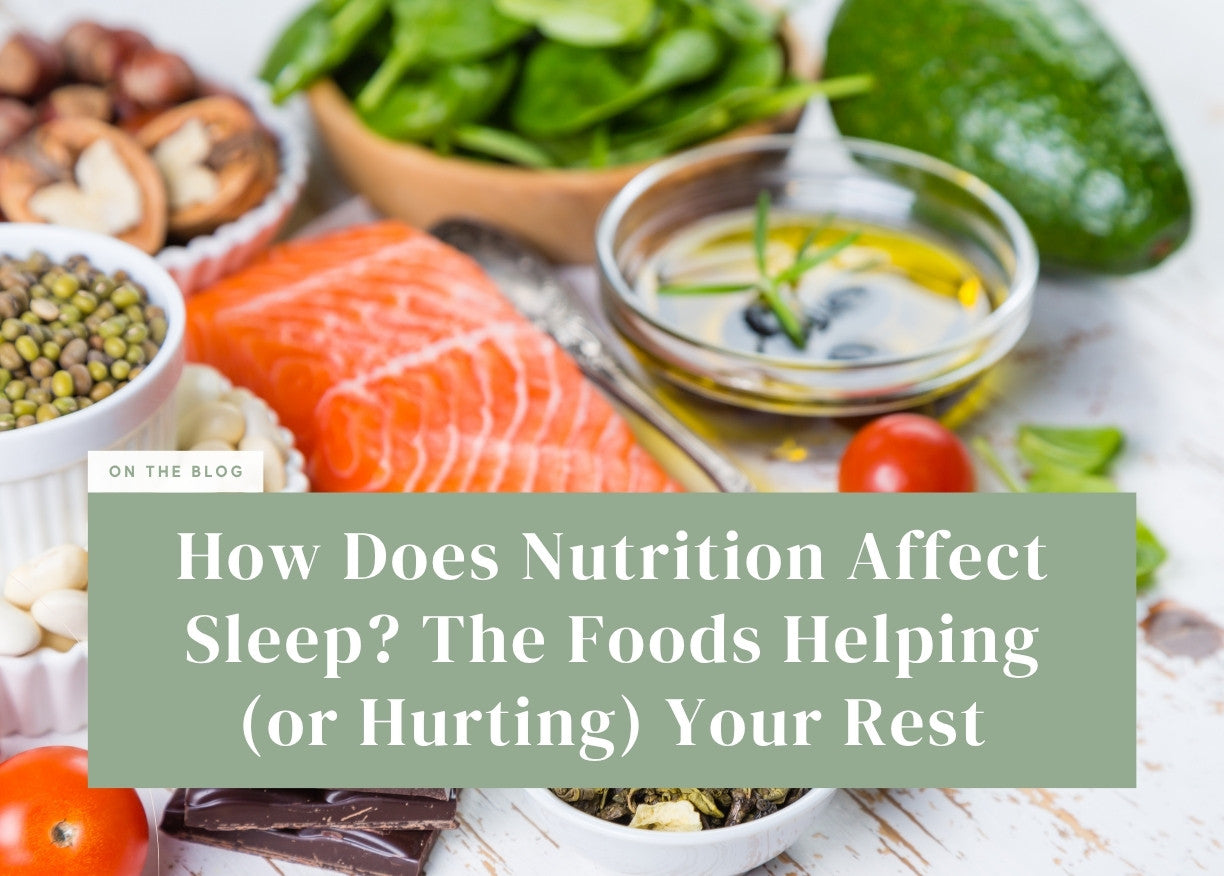How Does Nutrition Affect Sleep? The Foods Helping (or Hurting) Your Rest
You’ve had a long day. You’re tired.
You crawl into bed, ready to knock out the moment your head hits the pillow…
But your body has other plans. Tossing, turning, staring at the ceiling.
Sound familiar?
What you ate earlier might be the reason why.
We often think about stress, screens, or noise when it comes to bad sleep—but what’s on your plate matters just as much. In fact, certain foods and nutrients have a direct impact on how quickly you fall asleep, how deeply you rest, and whether you wake up at 3 a.m. for no reason.
Here’s what you need to know—and what to do differently starting tonight.
1. Your Sleep Starts in Your Gut

Sleep and digestion are deeply connected.
Your gut produces around 90% of your body’s serotonin, which gets converted to melatonin (your sleep hormone). If your diet’s lacking in gut-friendly foods, your sleep suffers.
✅ Eat: prebiotics (like bananas, garlic, oats), probiotics (yogurt, kimchi), and fiber-rich veggies
❌ Avoid: processed sugar and heavy late-night meals
2. Blood Sugar Swings Can Disrupt Your Night

Spikes and crashes in blood sugar don’t just mess with energy—they can wake you up at night.
✅ Eat balanced meals with protein, healthy fats, and fiber
❌ Avoid sugary snacks and drinks, especially close to bedtime
3. The Best Nutrients for Sleep

Some vitamins and minerals help trigger relaxation and deep sleep:
-
Magnesium (found in leafy greens, pumpkin seeds, dark chocolate)
-
Tryptophan (in turkey, oats, dairy)
-
Vitamin B6 (salmon, chickpeas, bananas)
-
Calcium (leafy greens, almonds, dairy)
These help your body make melatonin and calm your nervous system.
4. What to Avoid After 7 P.M.

Certain foods can wreck your sleep—even if you don’t feel it right away:
❌ Spicy foods – can cause acid reflux
❌ Caffeine – even if you “don’t feel it,” it can stay in your system for 6–8 hours
❌ Alcohol – might help you fall asleep faster, but it disrupts REM sleep and causes more nighttime wakeups
5. The Role of Hydration

Being slightly dehydrated can make you feel more restless at night.
But overhydrating too close to bed? Hello, bathroom wake-ups.
✅ Sip water throughout the day
🚫 Stop drinking large amounts 1–2 hours before sleep
6. A Comfortable Sleep Environment Still Matters
Nutrition sets the stage—but your bed, sheets, and pillow close the show.
A supportive mattress like the Honey Hybrid Organic helps your muscles fully relax after digesting your last meal.
The plant-based pillow and bamboo sheets from Sweet Zzz are breathable and cool, helping regulate your temperature if you’ve had a big dinner or are a hot sleeper.
Final Thoughts: Eat Right, Sleep Tight
Your sleep doesn’t begin when you close your eyes—it starts hours earlier, at the dinner table.
Paying attention to what (and when) you eat can lead to better rest, more energy, and fewer 2 a.m. wakeups.
Good food. Good sleep. Good mornings.





